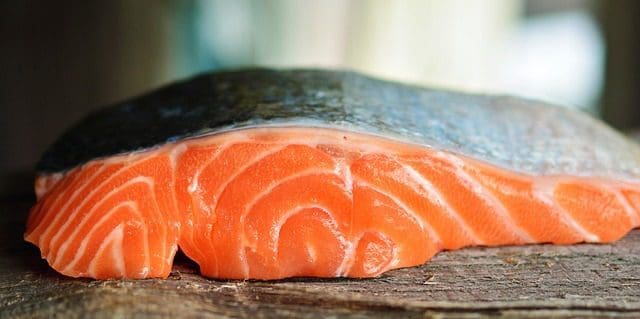Balancing your dog’s diet is the best way to improve their health and boost their immune system. However, balancing your dog’s diet is a bit complicated since you need to establish the right quantities of vitamins, minerals, fats, and calories per meal.
Often dog foods that you can buy at your local store are not packed with all the helpful nutrients, which means you need to boost their diet.
Today’s article will focus on Vitamin B12 since it is an essential part of your dog’s diet.
Vitamin B12, also known as cobalamin, is a water-soluble vitamin, or in other words, the body absorbs it until it satisfies its needs, and the excess will be extracted via urine.
Table of Contents
Uses of Vitamin B12 For Your Dog
Vitamin B12 plays a crucial part in your dog’s health, and cobalamin deficiency can lead to irreversible damage to different structures of the brain, as well as the spinal cord. If your dog doesn’t suffer from a significant Vitamin B12 deficiency, you might spot signs of depression, lack of appetite, pallor, or lethargy.
However, a more severe absence of Vitamin B12 can lead to serious problems in sensory perception that can result in seizures, coma, and in some cases, death.
Even though Vitamin B12 is a water-soluble vitamin, you should avoid high-dose supplements because it may result in nerve damage, numbness, tingling, and cancer risk.
That’s why the best way to provide your dog with the right dose of Vitamin B12 is through raw meats, bones, and organs. The goal here is to search for higher-quality meats and organs from grass-fed animals.
Best Sources of Vitamin B12 for Dogs
Organ meats (liver, kidneys, etc.)
Raw organ meat is an excellent nutritionally balanced food that will top up your dog’s needs of vitamins, minerals, and proteins. Raw organ meat has low calories since it doesn’t have too much fat, but it is packed with all the vitamins like vitamin C, E, A, and B12 necessary for keeping your dog healthy.
In fact, beef liver is incredibly nutritious for dogs and is the best source of vitamin B12 compared to other foods, just because it contains around 60 mcg per 100g.
Salmon
Salmon is another great source of Vitamin B12 and other helpful vitamins and minerals that will support your dog’s immune system, decrease inflammation, and keep your dog’s coat shiny at all times.
On top of that, Badlands Ranch SuperFood Complete dog food with salmon is a great source of protein that is essential for normal muscle functioning. Salmon serves as the perfect alternative, and in some cases, a better option than chicken, especially if your dog shows an allergic reaction.
Salmon is a great source of Vitamin B12, and it provides from 18.1ug to 0.3 ugs per 100 grams.
However, pay attention to how you prepare the salmon since undercooked salmon can contain Neorickettsia, which causes salmon poisoning disease and can be fatal.

Wild Game Meat
Elk, deer, and other wild meat is also a great source of Vitamin B12 for your dog. The typical serving size of 1 oz of game meat contains around 1.78 ugs. Raw game meat is one of the densely packed foods with vitamin B12, and it is safe for dogs to eat.
Raw Milk (not processed)
Just like any raw food, raw milk is good for dogs because it contains good bacteria that are not cooked out. This allows dogs to absorb the nutrients from the food they eat.
Apart from the many nutritional benefits like calcium, enzymes, and trace elements, raw milk is also a great source of vitamin B12. For example, a glass of raw milk (250ml) provides approximately 50% of the RDA (2-4 ug).
On top of that, vitamin b12 from milk can be absorbed by your dog quicker compared to other foods.
Grass-Fed Meat
The difference between grass-fed meat to more commercially raised animals is astounding. Grass-fed meat is packed with helpful vitamins and minerals and contains much more nutrients than commercially raised animals.
That’s why try to find grass-fed meat and incorporate it into your dog’s diet. Among the many helpful vitamins and minerals, it is also a great source of vitamin B12.
How to Avoid Vitamin B Deficiency
As we mentioned before, a Vitamin B deficiency can have a more serious impact on your dog’s health, leading to more problems in the future. That’s why it is important to maintain the right balance of vitamin B12 in your dog’s body by optimizing their diet. You can try a dog multivitamin for all your dogs’ needs.
Incorporating grass-fed meat (80%) in your dog’s diet, as well as occasional organ meals (10%), will keep your dog’s vitamin B12 levels optimal at all times.
Try to avoid synthetic supplements, and if you spot a lack of vitamin B12, try to increase their raw meat and organs intake instead of buying additional vitamin supplements. Additionally, you may want to consider incorporating probiotic chews by PetLab Co. into your dog’s diet. These chews are formulated with a carefully balanced blend of beneficial bacteria that can support your dog’s digestion, enhancing the absorption of vital nutrients like Vitamin B12 from their food.
Featured Image by Randy Rodriguez from Pixabay




